
Featured | May 28,2022
Leaders of the textile and garment industry are pressing with desperate calls for policy intervention, confronted with a flood of contraband trade, high excise taxes, and dwindling sales. The Ethiopian Textile & Garment Manufacturers Association (ETGMA) warns that failure to respond in time will threaten the survival of several of its 200 members. The Association’s leaders pleading for a further reduction of excise taxes to zero, which were lowered from eight to five percent last year, citing the rising cost of inputs.
They blame the proliferation of thrift shops that freely sell contraband items, fearing they undermine their market. These shops are stocked with vast quantities of used clothes smuggled into the country, creating an unfair competition for domestic manufacturers. According to the Association's Secretary General, Agazi Gebreyesus, approximately 10,000 second-hand clothes enter the market daily in areas like Taiwan, Efoyta, and Enken.
Studies the Association commissioned, presented to officials of the Customs Commission, discovered that locally produced and imported textile products account for around 47pc of the apparel market while the rest is flooded with used contraband brands. The influx of contraband goods, mostly second-hand clothing from European and American markets, is attributed to lax customs enforcement. Over 71.22 billion dollars worth of such items were shipped globally last year. Ethiopia, along with Kenya and Tanzania, is one of the destinations.
However, Tegegene Derese, head of Inspection at the Customs Commission, denied claims of inadequate inspection procedures, crediting customs officers for preventing contraband shipments. The Commission's efforts, which included confiscating over nine billion Birr worth of contraband clothes last year, tripled the number of total confiscations in 2019.
"We do everything we can," he told Fortune. "Few might slip past our control."
However, domestic manufacturers feel this is insufficient compared to the scale of the problem; it is likely a tenth of the actual figures that are reported. Agazi warned that the influx puts about 350 manufacturers at risk, with wide price disparity as these imported items often cost a tenth of those produced locally.
"Our profits have plunged fivefold," said the Secretary General.
Last month, he directed his members' plight to the ministries of Finance, Industry, Revenues and Federal Customs Commission as well as the State Minister for Finance, Eyob Tekalign (PhD).
Compounding the issue is the excise tax regime. Introduced three years ago on luxury or health-risk items, the tax scope has broadened to include everyday commodities like cooking oil, bottled water, and clothes. Despite a reduction from eight to five percent last year, the textile industry argues that this is insufficient given the rising cost of inputs and the economic downturn. They are advocating for a complete removal of the taxes to stay afloat.
However, the federal government is determined to increase revenue collections, aiming to raise an additional seven billion Birr from excise taxes during the budget year to meet 477.7 billion Br in revenues.
According to Wasihun Abate, the Ministry of Finance's senior tax advisor, the excise tax is imposed not only on luxury items but also on commodities with high tax-generation potential, even if they are small in percentage terms. He argued that the manufacturers' problems are beyond tax issues.
"Removing these taxes might not significantly boost industry performance," he told Fortune. "They've not figured out where the problem lies."
Wasihun traced the reduction of duties over the past three years from the initial 10pc to the need for a simpler tax administration, which is now levied on selling prices and not production costs.
It is a perspective the manufacturers are unwilling to share, seeing the excise tax as a critical barrier to their competitiveness. They argue that the taxes and contraband influx are squeezing their market share and pushing profit margins down.
Birhanu Degefa, general manager of Edget Garment Plc, noted a significant revenue drop, leading to a shift in production to uniforms for the military, schools, and graduations.
"We've stopped producing shirts and trousers as sales plummeted," Birhanu said.
The government's approach to excise tax is broader than that of most countries, according to Tadesse Lencho, a tax lawyer at TBeST. He observed the uncommon practice of excise tax on textiles and its impact on the sector's profit margins.
The declining share of manufacturing to the GDP, which has fallen to 4.9pc in 2023, has been particularly concerning considering the government's focus on industrialisation as a critical driver of economic growth. The federal government's import substitution strategy, promoted under the slogan "Let Ethiopia Produce", is a response to this decline, targeting domestic manufacturing and reducing the reliance on imports.
According to Tilahun Abay, head of Strategic Affairs at the Ministry of Industry, ongoing efforts to boost manufacturers' revenue and increase tax gains are underway by providing incentives. He claimed that 48.8 million dollars had been salvaged over the past three months by locally producing uniforms for the military as import substitution targets reached 38pc.
"We're finalising an implementation plan," he told Fortune.
However, the effectiveness of these measures remains debatable. Experts say the import substitution strategy, while having made some gains, has yet to show measurable results. Engagement between the government and manufacturers is sporadic.
Tadesse believes that the narrow profit margin of the textile sector and its sensitivity to prices expose it to changes in consumer behaviour patterns. He urged tax incentive policies should be implemented in the textile industry to make the sector competitive.
"It's debatable whether tax exemptions would boost the industry," Tadesse told Fortune.
PUBLISHED ON
Jan 13,2024 [ VOL
24 , NO
1237]

Featured | May 28,2022
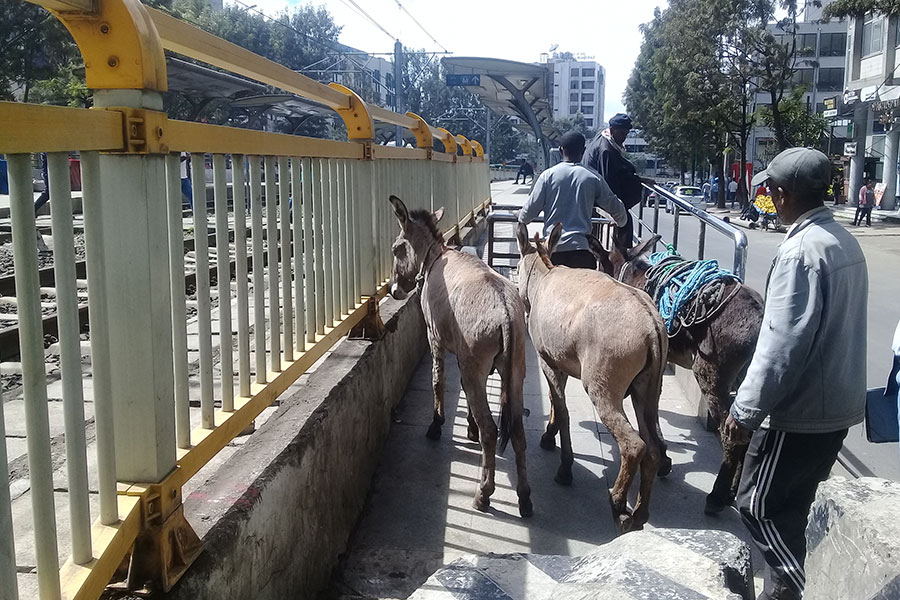
Radar | Apr 03,2023
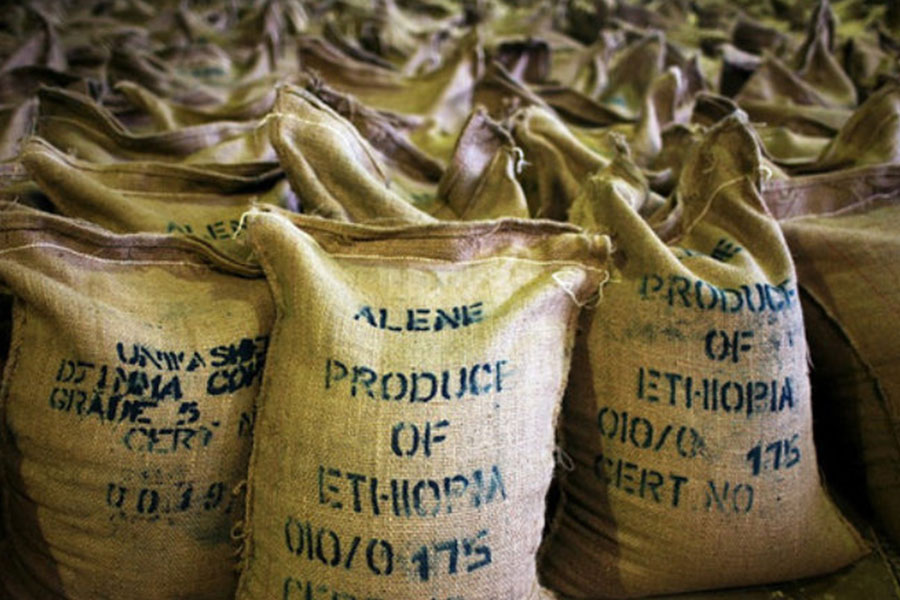
Fortune News | Dec 19,2021

Viewpoints | Nov 11,2023

Fortune News | Aug 28,2021

Radar | Aug 05,2023
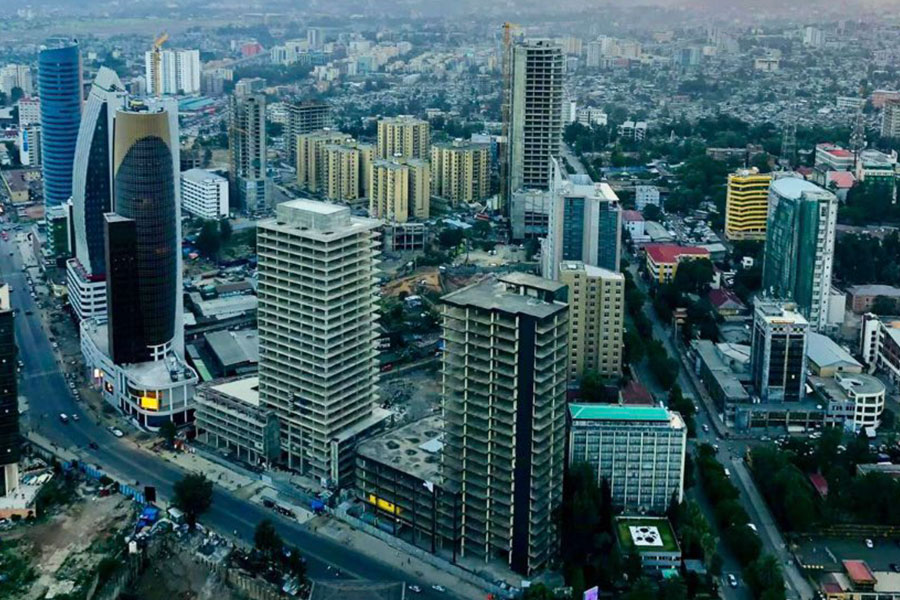
Agenda | Aug 27,2022

Viewpoints | Apr 25,2020
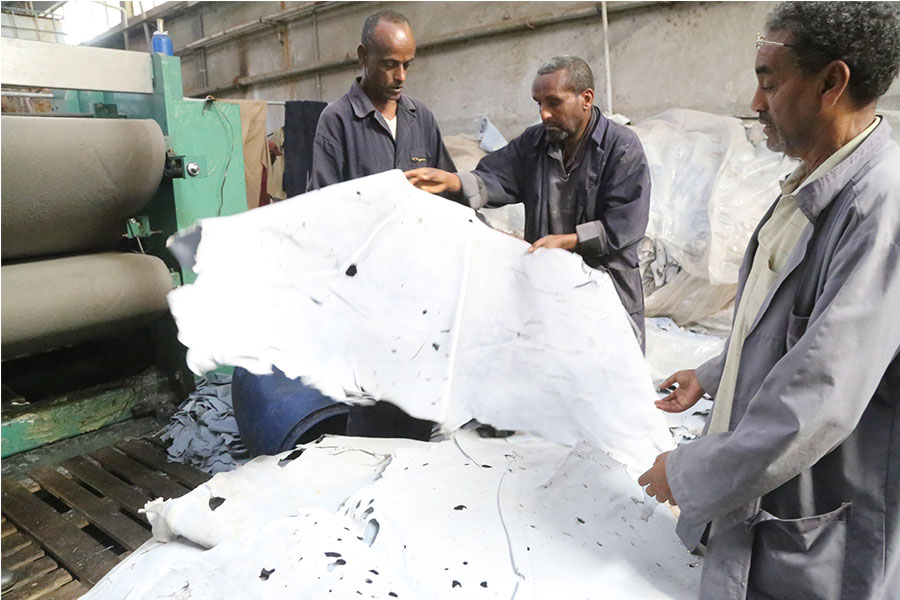
Agenda | Jan 26,2019
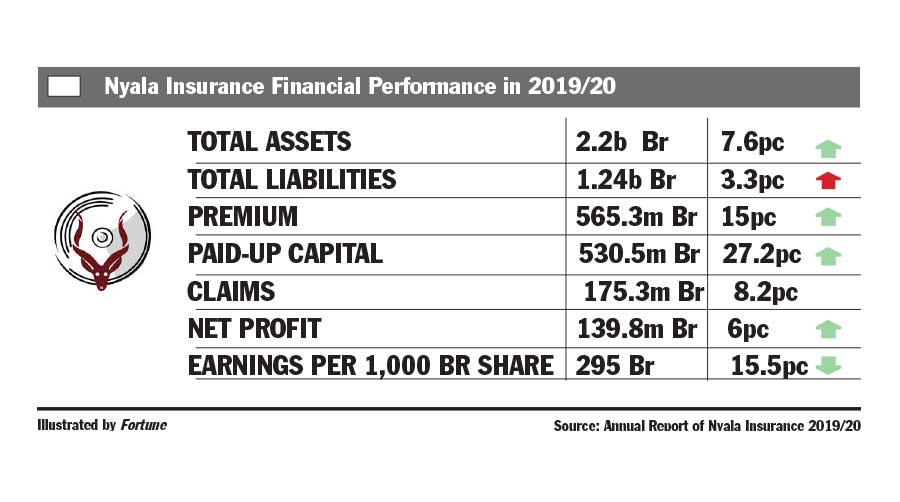
Fortune News | Feb 27,2021

Dec 22 , 2024 . By TIZITA SHEWAFERAW
Charged with transforming colossal state-owned enterprises into modern and competitiv...

Aug 18 , 2024 . By AKSAH ITALO
Although predictable Yonas Zerihun's job in the ride-hailing service is not immune to...

Jul 28 , 2024 . By TIZITA SHEWAFERAW
Unhabitual, perhaps too many, Samuel Gebreyohannes, 38, used to occasionally enjoy a couple of beers at breakfast. However, he recently swit...

Jul 13 , 2024 . By AKSAH ITALO
Investors who rely on tractors, trucks, and field vehicles for commuting, transporting commodities, and f...

Oct 25 , 2025
The regulatory machinery is on overdrive. In only two years, no fewer than 35 new pro...

Oct 18 , 2025
The political establishment, notably the ruling party and its top brass, has become p...

Oct 11 , 2025
Ladislas Farago, a roving Associated Press (AP) correspondent, arrived in Ethiopia in...

Oct 4 , 2025
Eyob Tekalegn (PhD) had been in the Governor's chair for only weeks when, on Septembe...